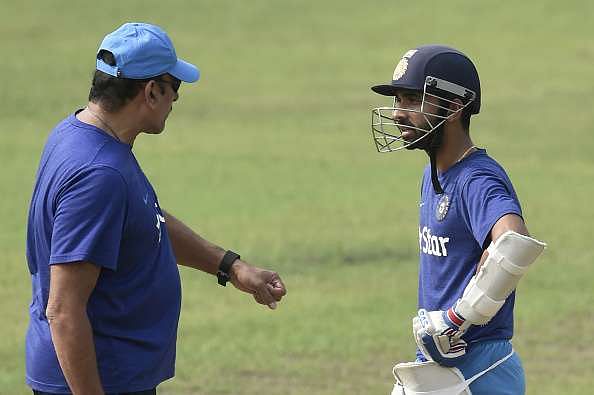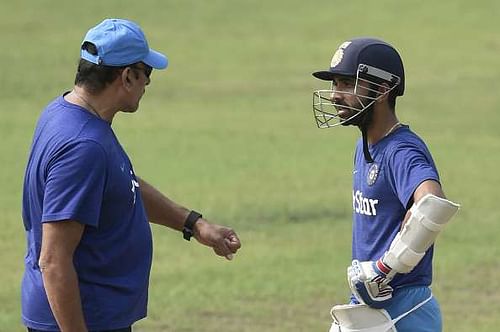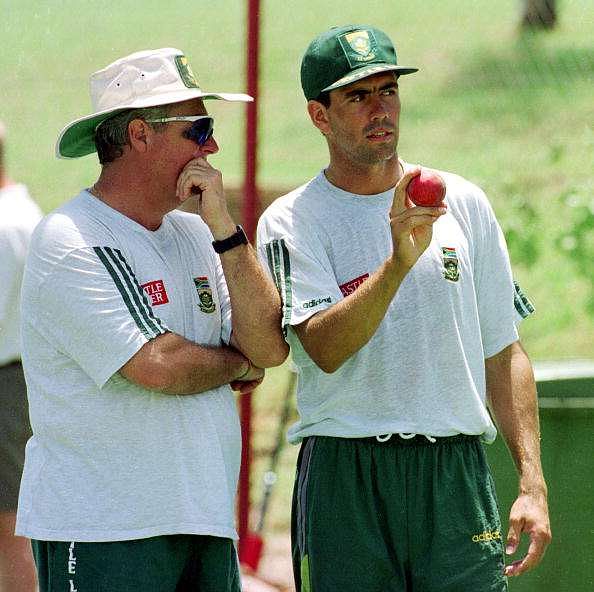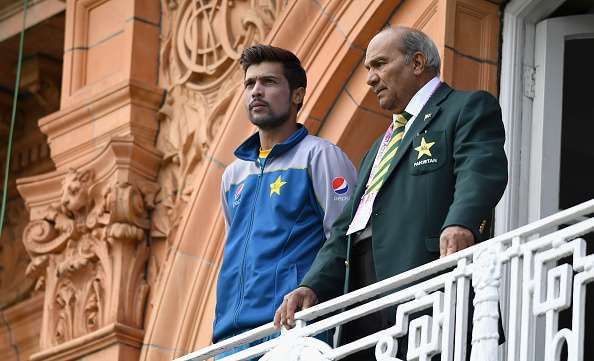
Is it time for managers in cricket instead of coaches?
Cricket, by itself, is a team game. We talk of players gelling together as one single, cohesive unit. The words motivation, team spirit, unity – all of these roll off everyone’s mouths when the squad excels at the international arena.
Having followed the game for a considerable period of time, many of us have been privileged to witness the evolution of two more individuals in the entire sporting setup. I am talking of coach – a person involved in the direction, instruction and training of the operations of a sports team – and manager – a person who handles basic organization and scheduling of his/her clients.
The advent of cricket leagues around the world, post the rise to prominence of the Twenty20 format, has accentuated the growth of the second individual, while the first one has been around for quite a long while.
One might ask: With the increase in professionalism among players and teams alike, what is the need for a manager and a coach? Can’t one of them carry on the work?
Also Read: 5 great cricketers who struggled in the role of coach
This sort of thinking is actually not new. When the Australian Cricket Board (ACB) brought Bob Simpson on board to assist new captain Allan Border, there was animosity between him and former skipper Ian Chappell. The 72-year old elder brother of Guru Greg is known to be a long-standing critic of coaches.
Even former Pakistan leg-spinner Abdul Qadir has gone on record stating that a national team with a cricket coach is essentially money down the drain.
Both stalwarts are entitled to their opinion as long-time servants of the game. But a decision as important as this is not something to be taken in haste. It needs much careful thought. After all, there is a world of difference between cricket and its contemporary sports such as soccer, American football, baseball, and the like.
That, in essence, is what this piece is all about: Are coaches needed in cricket any longer, or will managers have to do?
I see three key areas where both a manager and a coach have the necessary skills in order to get the best out of a bunch of talented and skilled sportsmen. Let’s look at them one by one:
Strategize, Plan and how to execute – Coach over Manager
One area which is vital to the success of the team as a whole is the Strategy component of the think-tank’s overall plan. In this case, a manager may not be wholly successful.
For one thing, team strategy (and indeed most of the technical aspects of the game) requires someone who has actually played cricket at some level - club or state – for a number of years. You need to have been in match situations in order to design an appropriate tactical approach for your side. On-field experience is, therefore, crucial to success.
The combination of the late Hansie Cronje (former SA captain) and the late Bob Woolmer (coach) achieved tactical success for the Proteas all throughout the late nineties. Woolmer may have had limited playing experience at the international level – 19 Tests and 6 ODIs in all – but he did have an astute cricketing brain.
The earpiece incident at Hove during the 1999 World Cup was one such example of his strategic thinking, “assessing and advising his wards to correct technical faults”, as he put it later.
Now contrast this with a manager who’s just come in and taken charge of a side struggling to recapture their former glory. He/she would, of course, make an attempt to talk strategy and work out an actionable plan. But the difference lies in the thinking – a coach is aware of on-field situations and how the game can swing, while a manager can only focus on the big picture.
In short – this is where a coach scores over a manager: he/she can strategize, plan and show how to execute it so that the goals are met. Practice over theory, any day.
Professional Approach – Manager over Coach
A team manager brings in a huge amount of professionalism to the job. Right from acting as mentor to the team, to keeping them motivated and advising them on etiquette, media interaction, etc., the job is immense.
If you consider only these aspects, then there’s actually no need for a manager to have more than just passing knowledge about the game. But there have been examples of former cricketers turning out to be excellent managers.
The 74-year old Intikhab Alam Khan, a former captain of the Pakistan team, is one such exponent. It was his diplomacy that kept warring stalwarts Imran Khan and Javed Miandad into a smooth working relationship, culminating in their 1992 World Cup title triumph.
Seventeen years later, he was at the helm when Younis Khan’s men lifted the Twenty20 World title in England.
When you have a squad filled with mercurial personalities, it is imperative to have a man in charge who can not only keep the war from spilling over into the public domain, but also bring out the best in these guys. Maximizing potential is something both a coach and a manager can do; however, a manager would be much more apt for this.
Player well-being – Both are needed
Australia’s current coach Darren “Boof” Lehmann is credited for turning around the fortunes of a struggling Test side in 2013. Primarily, he did two things: straighten out the technical flaws of his key players, and remind them to play the Australian way.
I was most intrigued by the latter task. Then I remembered how Boof had been part of two World-Cup winning teams, and also featured in the glorious Test team of old. And then it clicked: It’s the old school mindset. He’s just telling them to enjoy the game and give it their all.
Also Read: Can Anil Kumble do justice to his new role?
This is a very critical component: a player’s well-being. You need someone who can be there for you like a mentor, a guiding hand that pulls you out of darkness and into the light. Someone who makes it a point to keep players happy and enjoys their success should be picked for a role that is just as important as being a member of the playing eleven.
In this respect, both coaches and managers can fulfill the requirements – the former by a narrow margin, as they are actually there witnessing the myriad set of emotions any cricketer goes through.
Summary – Why not combine both roles?
The logical conclusion, then, is that it is much better if the roles of both coach and manager are combined. India did have the right idea with Shastri’s appointment as Team Director (he played both roles rather effectively). Pakistan, under Alam, did reasonably well in all three formats.
Former South African opener Gary Kirsten, and ex-Australian player Dav Whatmore have shown shades of blending both roles effortlessly.
The underlying reason remains the same: both roles have near-similar responsibilities. Even if they are kept separate, a coach and a manager are, in reference to my friend VV’s words, a team within a team. The jury might be out on this one, but a combination of these roles would actually be the best way to go forward.



